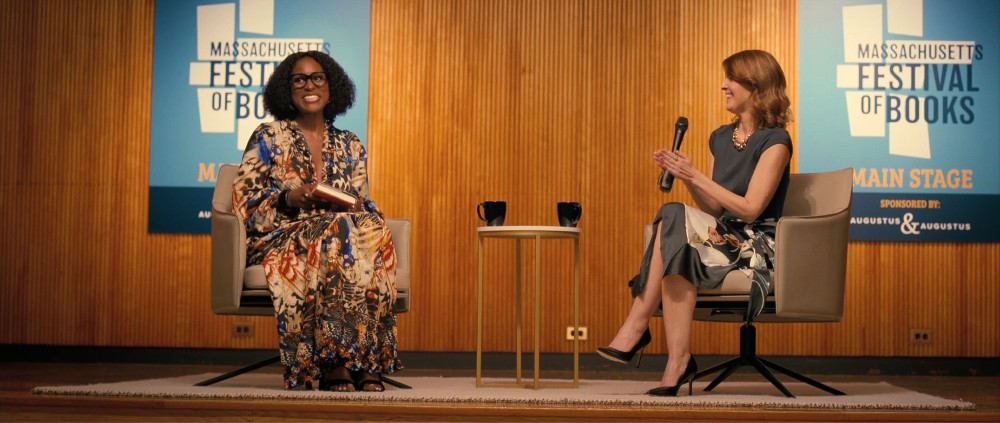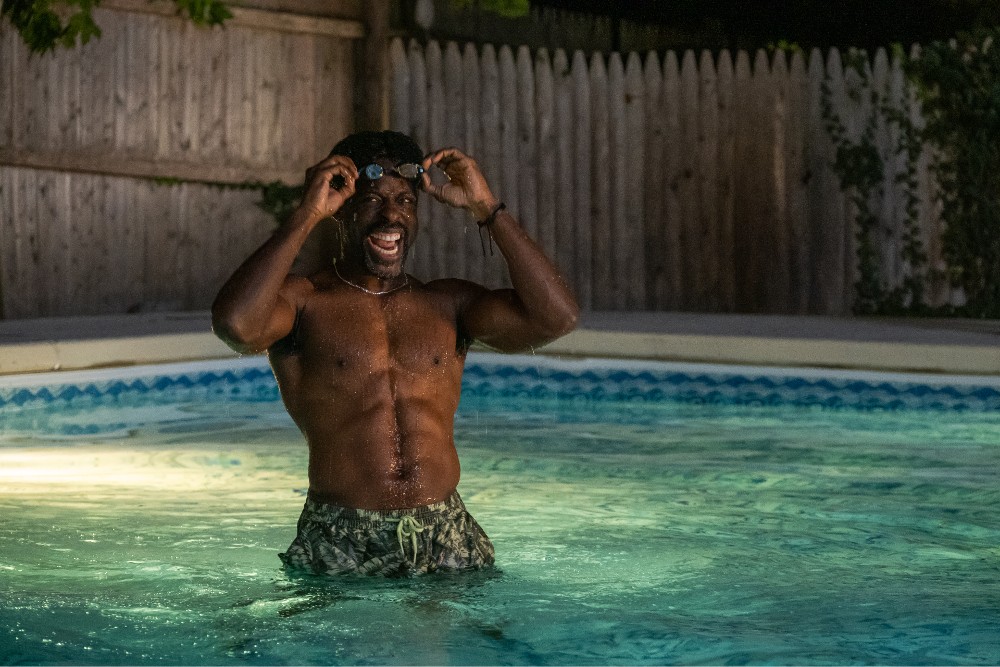
Times have been changing, but things are mostly getting better for Black writers and filmmakers. That wasn’t always the case, and American Fiction tackles that issue head on, while also possibly suggesting that things might have gone too far in some cases.
Jeffrey Wright plays Thelonious “Monk” Ellison, a published author whose haughty aspirations make him a literary snob, while dealing with criticisms for not writing enough about the black experience. On the other side of that coin is Issa Rae‘s Sintara Golden, whose book “We Lives In Da Ghetto” (yikes!) is written in such street vernacular that Monk doesn’t understand how she has been making all the money despite what Monk considers to be bad writing.
Attending a book convention in his original Boston hometown, Monk has a lot to deal with including the death of his sister Lisa (Tracee Ellis Ross), who had been watching over their mother Agnes (Leslie Uggams), suffering from Alzheimer’s. The funeral brings Monk’s recently outed (and sowing his oats) gay brother Cliff (Sterling K. Brown) back into the fold as his family settles down at their beachside house. There, Monk meets their neighbor Coraline (Erika Alexander), but he also gets the crazy idea of writing something more “street” under the pseudonym of “Stagg R. Lee.” It’s initially meant as a joke, but his agent (John Ortiz) loves it, and so does the first publisher approached, as Monk decides to keep his true identity a secret.

American Fiction is adapted by first-time feature director Cord Jefferson from Percival Everett‘s novel “Erasure.” At its best, American Fiction makes fun of Hollywood and its relation with the literary world, but more importantly, it deals with what has become expected of Black artists in the modern-day world, with Monk questioning his place as a writer who takes his craft seriously without necessarily writing about that Black experience.
Unfortunately, that strong premise is surrounded by a lot of ideas that aren’t quite as original, ticking off so many boxes: failed writer works as teacher, loses his job, goes back to family home, suffers a death in the family, has a mother with Alzheimer’s, a romance with a neighbor. The intense familiarity doesn’t hinder the film too much, though, since it does have an original voice and Wright is just so damn good at selling a misanthropic character who makes you laugh with his misery.
He’s surrounded by other great supporting roles, including Uggams and Ross, who sadly only appears for a few minutes. In many ways, they’re there just to create a situation where Monk needs to literally sell himself out in order to get the money needed to help his family. His decision to keep his identity a secret puts him into multiple conflicts, including with Coraline, who literally could get him out of his miserable shell if he wasn’t having such an identity crisis. Brown, unfortunately, plays as a missed opportunity in the story. He doesn’t have nearly enough to do in the big picture.

American Fiction isn’t really much of a showcase for its below-the-line-crafts other than the score by Laura Karpman (Ms. Marvel), which is crucial to Jefferson and his cast being able to switch tones so effortlessly. It’s beautiful work, and the movie as a whole generally looks good, even if its style is as overly familiar as the plot sometimes. It doesn’t help that there have been so many movies set in Massachusetts at TIFF this year, but often, Jefferson and his Location Manager Stephen Hartman and Production Designer Jonathan Guggenheim do find new areas that help American Fiction have a distinct look from them those other TIFF titles.
There are definite aspects of Robert Altman‘s The Player in the movie’s last act, as Monk tries to get an adaptation of the book he wrote literally as a joke off the ground. American Fiction has a lot of wry and clever humor that will surely entertain some audiences more than others, but it also runs into the danger of being a parody of itself, with a few too many surface-level elements at play. Still, Wright is just so damn good that American Fiction manages to land many satirical punches while being a fine acting showcase.
Rating: B
MGM will release American Fiction into theaters on Friday, November 17.





